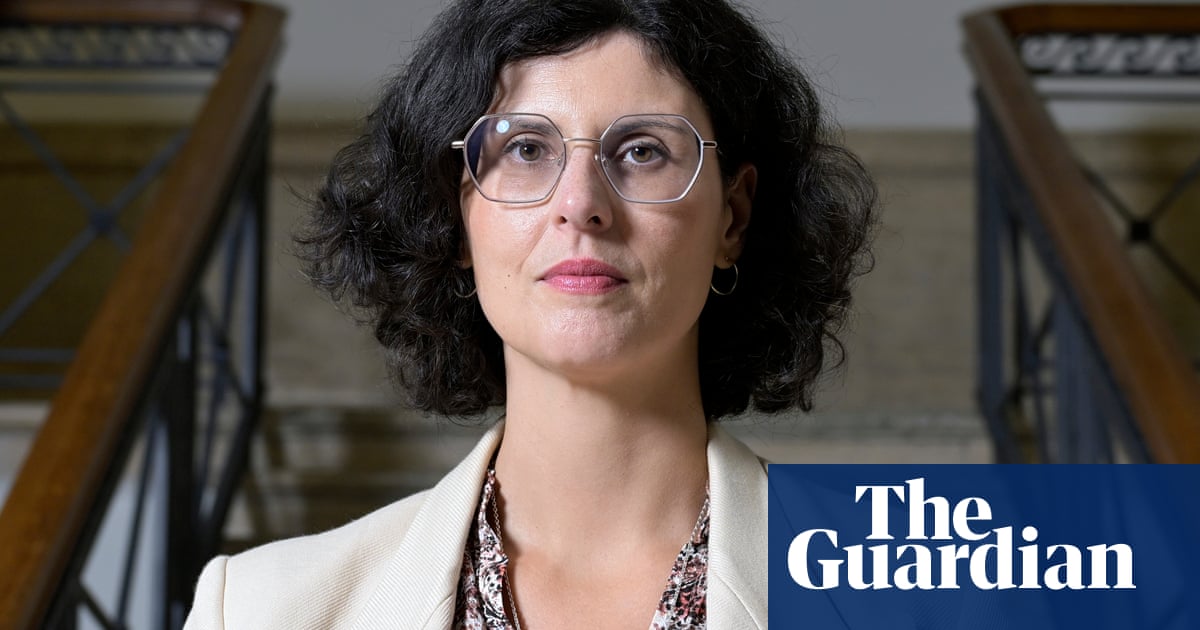Layla Moran has told the UK government to match its tougher tone on Israel with action as she warned that people in Gaza face “unbearably cruel levels of destitution”.
The Lib Dem MP called for further action, including recognition of a Palestinian state, in a renewed appeal for the family ofMohammad, an NHS doctorwho operated on her last year, whose elderly parents remain stuck in northern Gaza.
He described conditions on the ground as a “slaughterhouse” and said people were on thebrink of starvation.
The Guardian spoke to the pair last October when Mohammad’s parents were trapped in their home as drones stalked the streets outside. Shortly after, they were forced to flee whenit was bombed in a strike that killed his cousin and nephew.
They have since returned, being among the lucky few in the neighbourhood to “have walls that remain standing”.
In recent weeks, the government has adopted a more critical tone against Israel. On Wednesday, the Middle East minister, Hamish Falconer,calledIsrael’s aid blockade “appalling”, “cruel” and “indefensible”, while the foreign secretary, David Lammy, said the UK was in talks with France andSaudi Arabiaover the recognition of a Palestinian state ahead of a conference in June.
Moran said: “I remain frustrated that while the government’s words and tone have changed, in terms of concrete actions, not much has changed.”
She called on the government to recognise a Palestinian state, which would “safeguard Palestinian interests and also send a very clear signal toIsraelthat there are consequences to their actions”. She also condemned the government for allowing trade from illegal settlements and for “still arming Israel when they shouldn’t be”.
Moran said the plight of Mohammad’s family “reminds us that we have citizens of the United Kingdom that are being affected by what’s going on in northern Gaza”.
Mohammad, who has worked for the health service for 20 years, grew up in the Jabaliya refugee camp. He is in regular contact with family members stuck in Gaza.
“The entire population has been squeezed into around a couple of kilometres,” he said. “A very small area with no shelter, no food, nothing. It’s beyond description.”
“People are really starving to death, because there’s nothing left. They haven’t seen proper food or aid for the past three months.”
Sign up toFirst Edition
Our morning email breaks down the key stories of the day, telling you what’s happening and why it matters
after newsletter promotion
His brother-in-law called him on Saturday morning from northern Gaza, where Israeli rockets have rained down from the skies. Overnight,Israeli airstrikeskilled at least 100 people. Hunger and starvation are rife as the blockade imposed by Israel looks set to enter its 11th week.
“Everything is destroyed there. In the first starvation wave, there was animal food that people used to dice. Now, there is none of that. You’re very lucky if you have a bit of flour to make some bread.
“The bombs won’t be able to kill everyone, it’s the starvation that will,” he said.
Mohammad said that when he calls his parents, they tell him: “We are OK, we are managing.” He is particularly concerned about their wellbeing. His mother has diabetes and hypertension and his father had his colon removed, leaving him frail.
“[My brother-in-law] said, your dad doesn’t tell you because he doesn’t want you to worry you so much,” he said. “Anybody a bit vulnerable basically dies.”
Mohammad has been told of the desperate conditions on the ground, describing “people dying of hunger and bombing” and those with infections or struck by missiles being unable to find treatment.
“Anybody who gets wounded is so unlucky, because they die. There is no treatment, no medicine, nothing to offer them,” he said.
His brother-in-law told him “there are people with no skin. The missiles they fire burn the skin off them. They tell you, ‘I wish I could die.’” He also described soaring prices for basic food and supplies including tents and sugar, adding that oil was being “sold in syringes in units of 5ml, 10ml or 20ml” to ration it out.
Moran, who struck up a friendship with Mohammad while she recovered from surgery, said: “Starvation shouldn’t be a weapon of war and it is unbearably cruel that it’s got to the levels of destitution that Mohammad’s family are describing, but their story is just one of millions that are now trapped in northern Gaza in a situation that seems even worse than at the beginning.
“It has to stop now and the UK government needs to redouble its efforts to make that happen.”
